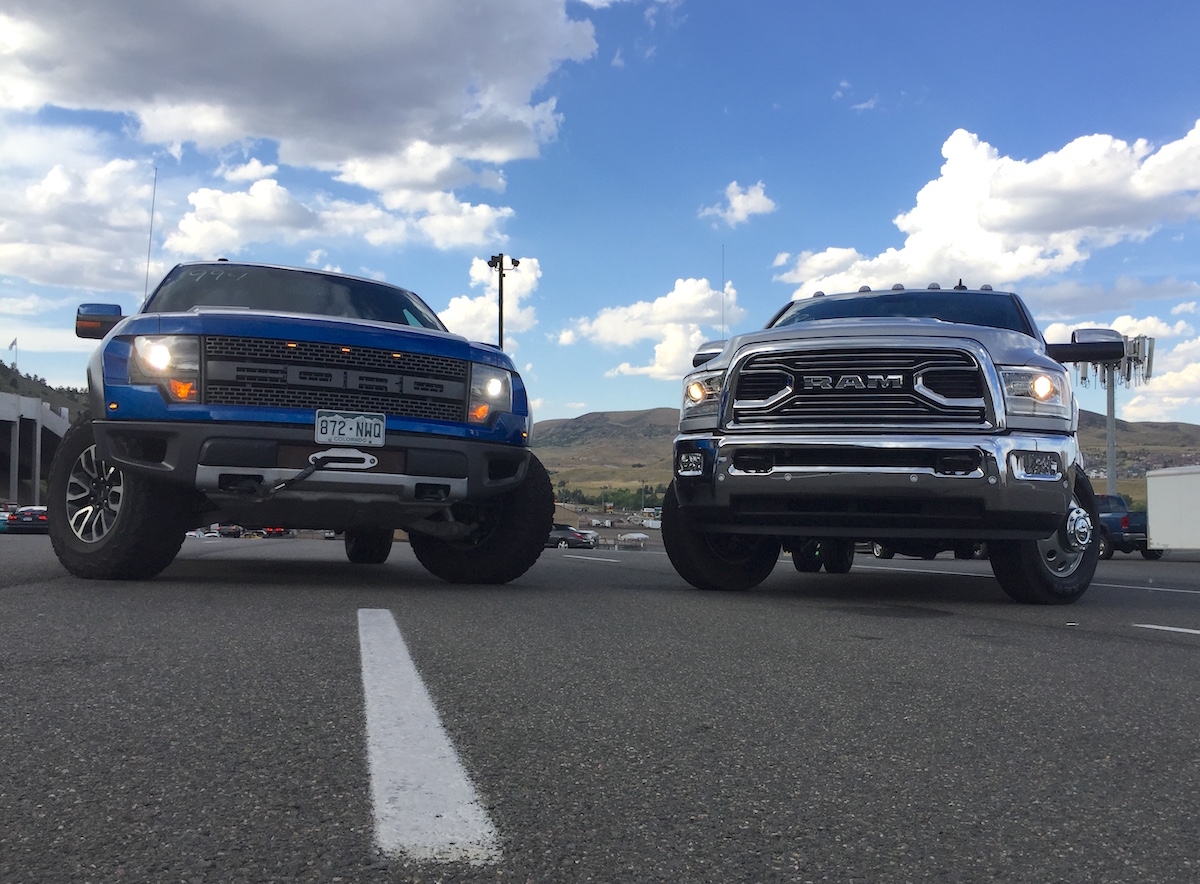
Regularly towing requires you to look at your vehicle purchase differently, and in this edition of AskTFL, we’re looking for the best rig to tow a pontoon boat.
The question comes from Nate Rietfors:
I have a question on what type of truck is best for towing a 20 foot pontoon boat? I have a Toyota Tundra and it can tow it anywhere… I just get terrible gas mileage. I am wanting to look into either an ecoboost, f-150 diesel, or a 2500 diesel. I can’t make a decision. I guess, I’m just looking for some advice, so I can go in the right direction. I don’t want to regret my purchase later on down the road. I have done that too many times.
First thing we need to do is see how much a 20-foot Pontoon boat weighs. It seems that most 20-foot boats are in the 1,500 to 2,000 pound range, though keep in mind that the weights listed on these boats are dry weights, meaning fluids and gear and not taken into account. Some examples are the PrinceCraft Vectra 21 which comes in at 1,704 pounds, the Sun Tracker Party Barge 18 DLX which weights just 1,495 pounds but is slightly shorter than 20 feet, and the Lowe Boats SS210 which weighs in at 1,985 pounds.
And then you have to add on the trailer’s weight, which can be anywhere from 1,000 to 1,500 pounds. So let’s go ahead and call the average Pontoon boat, with a trailer, weighing in around 3,250 pounds.
Before we even touch the F-150 question, let me say this. Have you considered a midsize pickup? The GMC Canyon, Chevy Colorado, Toyota Tacoma, Nissan Frontier and even the new Ford Ranger could handle a boat of this size, with most of these trucks having tow capacities that are double the weight of this boat. You will have to invest in a set of aftermarket towing mirrors as the side glass on these small trucks won’t be enough, but besides that, a midsize could work. That could be the answer to your fuel economy issue as well, as these smaller lighter trucks tend to get better mileage.
Now based on your question, a midsize pickup isn’t in play here, but it’s important to know it could work.
Another important note: four-wheel drive is a huge help if you spend a lot of time on boat launches/ramps. It’s nice to have on perfectly paved launches that can become slippery, but it will be necessary when you face that uneven gravelled launch at the local watering hole. So everything following is assuming you’re getting four-wheel drive. Because you should.
Now, on to bigger trucks. First off, an F-250 or 2500 series pickup is overkill for this kind of load, so if you’re never planning to tow something bigger, I wouldn’t recommend it. And if you want better fuel economy, the big Powerstroke diesel probably won’t deliver what you’re looking for.
So now the question is, which F-150 is right for you? If you’re looking for an EcoBoost engine, the smaller 2.7-liter is probably the way to go. It is rated at 19 mpg in the city and 24 on the highway for a combined 21 mpg rating. That’s much better than the 5.7-liter V8-equipped Tundra’s rating of 13 in the city and 17 on the highway.
The lowest tow capacity for a 4×4 F-150 with the 2.7-liter EcoBoost is 7,600 pounds, so no issues with tow capacity either. And when it comes to power, the 2.7-liter offers 325 horsepower and 400 lb-ft of torque which should tow your pontoon boat authoritatively.
If you want to save a few dollars, you could go with the base engine, a 3.3-liter naturally aspirated V6, as it can tow up to 7,700 pounds on the high end, and still can handle 5,000 pounds in its lowest form. Although, there is not much to be gained in fuel economy here, as the 3.3-liter is rated at 18 mpg city and 23 on the highway with 4×4, actually getting worse mileage than the 2.7-liter EcoBoost. And with 290 hp and 265 lb-ft of torque, this engine option could leave you wanting for power.
The larger 3.5-liter EcoBoost could be on the table as well if you really want a lot of power (375 hp and 470 lb-ft) but the smaller 2.7-liter is more than enough for your load. If you’re curious, the most efficient 3.5-liter with 4×4 is rated at 17 mpg city and 23 mpg on the highway. With its lowest towing capacity pegged at 10,700 pounds with 4×4, this truck would easily haul your boat, though it probably wouldn’t feel all that much better than the smaller 2.7, considering you’re not heavily taxing either truck.
Finally, the diesel. This is the most economical option for fuel, as the 4×4 XL/XLT 3.0-liter diesel is rated at 21 mpg in the city and 28 mpg on the highway. With 250 horsepower, 440 lb-ft of torque, and a tow rating of up to 11,400 pounds, it will also haul your boat more than comfortably.
The biggest downside to the diesel is that so far Ford is only offering it on Lariat trim and higher trucks, so you’re going to be into luxury truck territory on price if you really want the oil burner.
















![Which is More Reliable: 3.5L EcoBoost or 5.0L V8? [Reader Question] Second-generation 3.5-liter EcoBoost engine](https://tfltruck.com/wp-content/uploads/2016/05/Second-generation-35-liter-EcoBoost-engine.jpg)
![Which Silverado Engine to Get: 5.3L or 6.2L V8? [Ask TFLTruck] 2016 chevy silverado](https://tfltruck.com/wp-content/uploads/2015/10/2016-chevy-silverado-grille.jpg)
